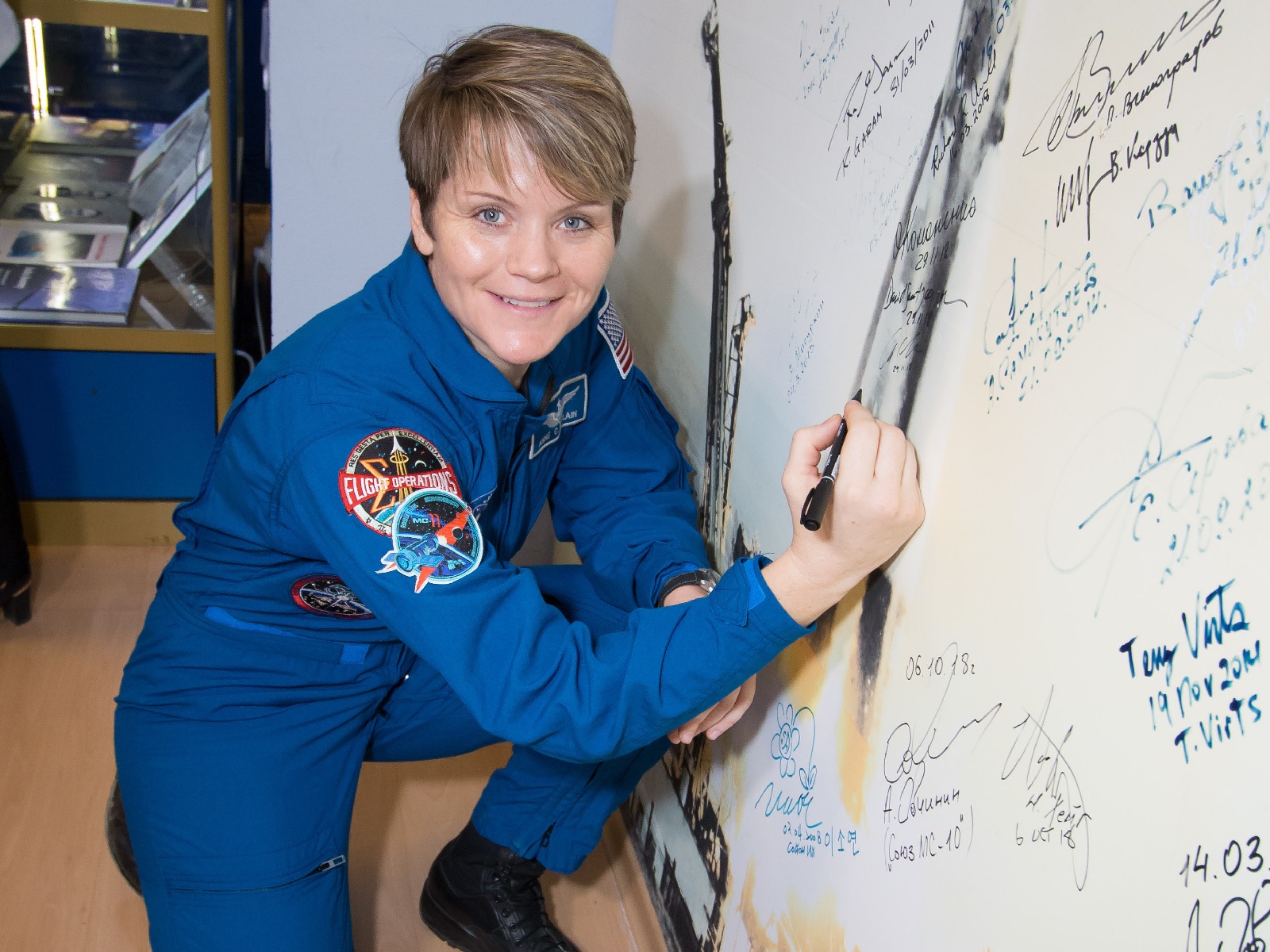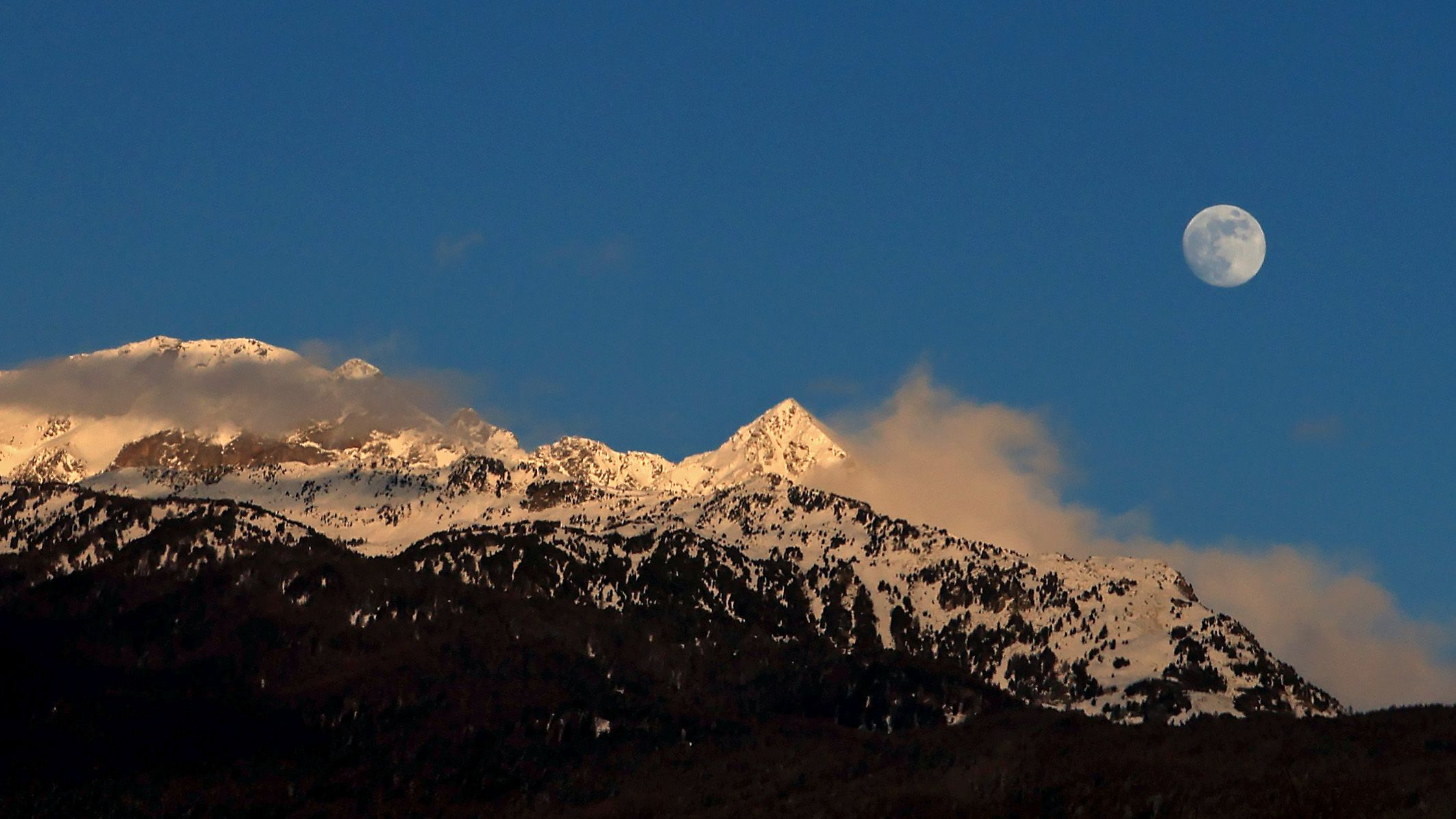In Space, Astronaut Anne McClain Draws on Rugby, US Army Experience for Super-Productivity
While every astronaut is scary-busy, NASA astronaut Anne McClain stands out in a crowded field for her productivity. I learned this six months ago in Baikonur, Kazakhstan, when I tweeted a thank-you message to McClain and the rest of the backup crew for doing interviews with us just prior to Expedition 56's launch there on June 6.
McClain not only noticed the tweet, but also took a moment to respond on the day after launch. She had found a quiet moment, I suppose, the day after helping colleagues suit up for space and dealing with countless media stops at crowded locations. While most of the media corps collapsed in exhaustion on our plane back to Moscow, McClain was still working hard on the public relations beat. "Thanks for telling the story! It is an incredible one," she told me cheerfully.
I saw this productivity again when she was chatting with family members just before her own launch in Baikonur on Dec. 3. While seated in the suit-up room, protected by a glass shield from the 150 or so spectators and family members, McClain calmly recounted the stages of launch so that her family members would know what to expect: no worries, few emotions shown, just plain being practical.
As family members told me in Baikonur, that's just Anne: a rugby player, a helicopter pilot and a grown-up kid who still remembers the time her frustrated brother destroyed her only copy of "Top Gun" because he thought she was watching the fighter-pilot movie too many times.
In a NASA video decades later, she recounted the lesson she learned from the incident: "Maybe it's partly his fault that I have to go live that dream as a military pilot."
Breaking space news, the latest updates on rocket launches, skywatching events and more!
How rugby helps in space
McClain's focus is coming in handy now on the International Space Station. On Thursday (Dec. 20), the Expedition 56-7 crew left the orbiting complex and McClain's Expedition 58 crew of three became the only ones on the station for two months.
It's a long time for three people (McClain, Canada's David Saint-Jacques and Russia's Oleg Kononenko) to do maintenance like fixing toilets, changing air filters, cooking … and perform science on top of that. Normally, a full space station complement has six people, but this staffing was disrupted when the Expedition 57 crew, launching on Oct. 11, quickly returned to Earth due to a deformed rocket sensor. While the Russian space agency addressed the issue within weeks, the effects on crew rotation of the scrubbed launch will last a while.
"I think the most important thing that we can do is [make sure] that when we pick up the baton, we are ready to sprint," McClain said of her space station crew at a press conference in Baikonur on Dec. 2, which I attended. "So, we will be asking [the Expedition 56-7 crew] about efficiencies. Our ground team is aware of it as well. And we also fully understand that our ability to do the work efficiently is directly correlated to the science, because the maintenance of the space station doesn't change, but the hours we can put into our science [do]."
This could mean very long days for the space station crew if they're not careful. NASA will, of course, do its best to help its crew maintain a healthy work-life balance. But McClain — a former member of the U.S. national rugby team — has said many times in interviews that she has a clear-headed method for facing exhaustion. She played the sport until just before she was selected as an astronaut, in 2014.
"Rugby has surprisingly helped me a lot as an astronaut, and when I'm training in the space suit ... and we're working in our large pool, the Neutral Buoyancy Lab, underwater, we're under there for 6 hours at a time," she said in a NASA video published Nov. 30.
"You really work yourself to physical and mental exhaustion," she added. "The only other time that I've hit that point of exhaustion is the 60th minute of a rugby match. When your body gets that physically tired, you can't mentally give up. You actually have to think about things more deliberately, with more clarity, because you're more prone to mistakes."
McClain will also draw on her experience as an Army helicopter pilot to make sure that she is implementing the right procedures at the right time. She said in another NASA video, speaking about her military experience, "When something looks really risky from the outside, what people are doing on the inside — they're not professional risk takers. But they're probably professional risk mitigators."
Settling into life in orbit
While McClain is a devoted professional, she makes time for her family and for events that have personal meaning to her. Pictures earlier this year (republished in Business Insider) showed the spacesuited McClain proudly posing for official NASA photos with her 4-year-old son.
The pictures, originally published on Twitter, went viral, and McClain, using her usual wit, took the time to answer several people who commented on the shots. She told one public-transit train driver that her son "would trade me for a train driver without a second thought." She also spoke honestly about how torn she felt leaving her son behind for a few months, adding that all parents would understand the feeling.
Funny enough, McClain was even younger than her son when she first dreamed of being an astronaut. "I've wanted to be an astronaut since I was 3 years old," she said in the NASA video. "That's when I first told my mom I wanted to be an astronaut. When I went off to preschool, I told her I was going off to school to learn to be an astronaut, and when I was in kindergarten, I wrote my first, poorly written, book on going to space — on the Soyuz vehicle."
It was a precocious choice, given that the U.S. space program during McClain's childhood used the space shuttle not the Soyuz. Things sure have changed in 40 years. Perhaps McClain thought of those memories as she took her son's dinosaur toy to space; she also tweeted several pictures about Elf on a Shelf on the space station, just in time for the holidays and the usual rush of toy purchases here on Earth.
While McClain does face personal sacrifices in spending six-plus months away from home, her overall reaction to time in space remains exuberance. Among her recent tweets was a picture of herself, fully focused on some small experiment near the top of the photo. The self-described nerd — who said she loves being one, because nerds go to space — seems right in her element in the shot.
".@ISS_Research is really phenomenal; every day, we get to play a part in learning about our universe, our Earth and the creatures that live on it. Getting to do science on the ceiling? Well, now that's just cool!" McClain said in her tweet.
Here's to more nerdy ceiling science.
Follow us on Twitter @Spacedotcom and on Facebook. Original article on Space.com.

Elizabeth Howell (she/her), Ph.D., was a staff writer in the spaceflight channel between 2022 and 2024 specializing in Canadian space news. She was contributing writer for Space.com for 10 years from 2012 to 2024. Elizabeth's reporting includes multiple exclusives with the White House, leading world coverage about a lost-and-found space tomato on the International Space Station, witnessing five human spaceflight launches on two continents, flying parabolic, working inside a spacesuit, and participating in a simulated Mars mission. Her latest book, "Why Am I Taller?" (ECW Press, 2022) is co-written with astronaut Dave Williams.

